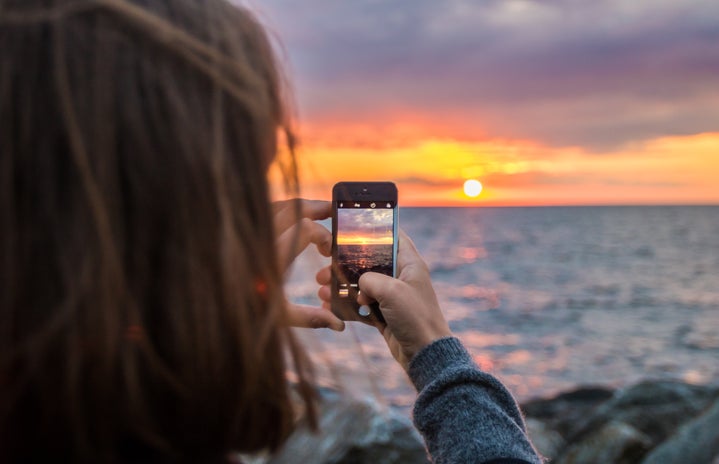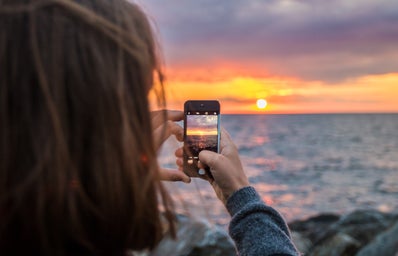Vicious animal? Huge crowd? Extreme temperatures? Nothing will stop you from getting the perfect selfie.
When referring to the teens/young adults of today, the media often dubs us “Millennials” or “Generation Z.” These labels encompass anyone who was born after the mid-nineties growing up, and thriving, in a heavily technological world. However, the main focus has shifted from simple technology like basic phones and computers to the extreme use of social media. Because of this shift, I like to call our generation “the Instagram Generation.”
Before I start criticizing everything about the Instagram Generation (IG), I completely accept that I am part of and actively participate in this culture. Not only do I participate in it but, quite frankly, I am obsessed with it. Keeping that in mind, I do not think the IG is healthy by any means.
My basic, broad definition of the Instagram Generation is teens/young adults who actively use and update their social media accounts frequently. Girls tend to be more active in the IG than guys, but that is not to say that the entire Generation is composed of girls.
The whole point of the app Instagram is to post photos that you enjoy. However, the app itself has turned into a game where users try to collect the most likes. IG-ers spend hours taking photos, editing these photos, and then uploading them to the app in an attempt to get likes. I am guilty of posting photos at a specific time during the day where I feel the most people will see my picture.
To further this point, those participating in the IG often have a specific online “image.” They create online personas that (more often than not) do not truly reflect the person they are offline. IG-ers attempt to portray themselves in a way that makes their lives look amazing and unattainable to those seeing their posts.
Seeing these types of posts causes individuals who do not participate in the IG to begin posting similar images in order to receive validation from their peers. If their images do not receive a warm response or the desired amount of likes, their self-esteem can drop. It is extremely sad that receiving compliments online, many times from strangers, can make a person feel better than receiving a compliment in real life.
Personally, I am in the process of crawling out of the hole that defines the Instagram Generation. I’ve started to post things that I like, not things that I simply think will get attention and generate likes. If the IG can stop focusing on concepts that are not even tangible, likes that have no actual meaning in the real world, we can move on from the titles associated with our “perfect” lives and begin to focus on our authentic lives.

